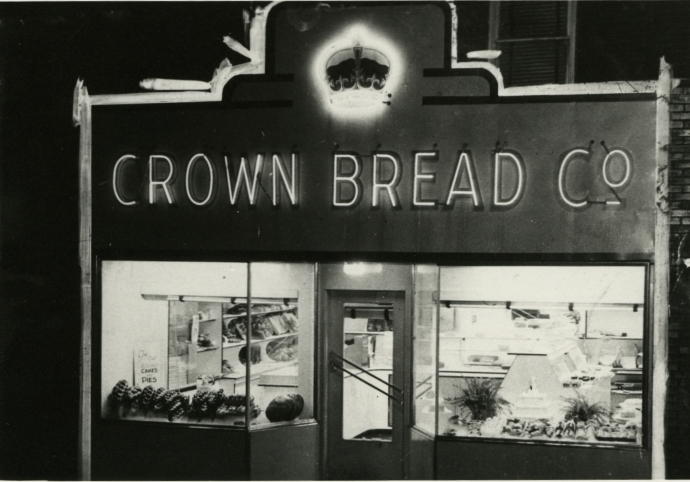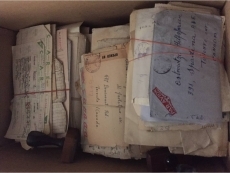New Collections: Max Hartstone and the Ostrovtzer Hilfs Farein
Max Hartstone (1907-1982) was the owner and proprietor of the popular Toronto bakery, Crown Bread Company also known as Hartstone Kosher Bakery. This recent collection donated to the OJA by his daughter, Nancy Freeman includes a fabulous collection of photographs documenting the Kensington Market business that Max first opened with partner Benny Richmond at 319 Augusta Ave., (the original location of Gryfe’s bakery), and its expansion and grand reopening in 1952 at 311 Augusta Ave. This part of the collection, on its own, is a treasure trove for OJA researchers who possess an insatiable appetite for all things Kensington Market.
But included with this cheerful set of photographs is a more sombre collection of primarily Yiddish language letters addressed to Max Hartstone, not in his capacity as bakery owner, but as secretary of Toronto's Ostrovtzer Hilfs Farein, a Jewish benevolent society established in Toronto in 1924 by landsmanshaften from Ostrowiec, Poland. Daughter Nancy recalled seeing these letters sitting for years in large bakery boxes in the family garage. Now unearthed, their contents may tell of the plight of Jewish refugees originating from Ostrowiec Poland seeking aid from Toronto’s Ostrovtzer Society.
The letters begin in 1946. They were sent from Paris, Sweden, various locales in Southern Italy, Romania, California, Tel-Aviv, Bergen Belsen and the US Zone in Germany to name but a few. Many bear the stamp of the Comité d'Entraide d'Ostrowiec, the Ostrovtzer Society’s counterpart in Paris. The reasons for the letters are still unclear, but they were no doubt in response to the great humanitarian need following the Second World War. The Ostrovtzer Society was actively engaged in sending relief to survivor refugees as is evidenced by the accompanying records documenting postage for parcels sent overseas, donation receipts, bank cash transfers, advertisements, relief committee contributions, parcel receipts and more.
This collection currently poses more questions than it answers. The OJA is prioritizing the letters for translation on our upcoming Yiddish Translation Hub and we will be updating this post with our findings.

